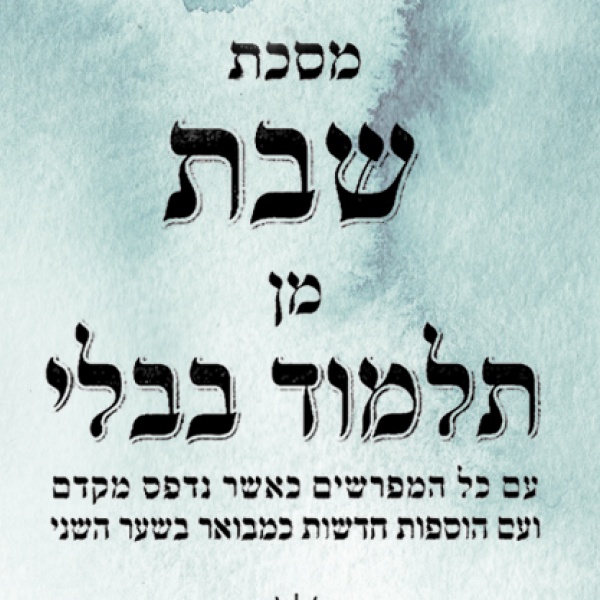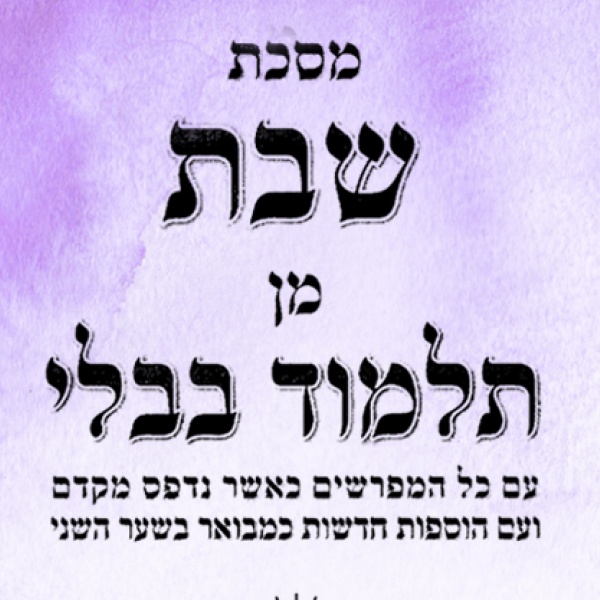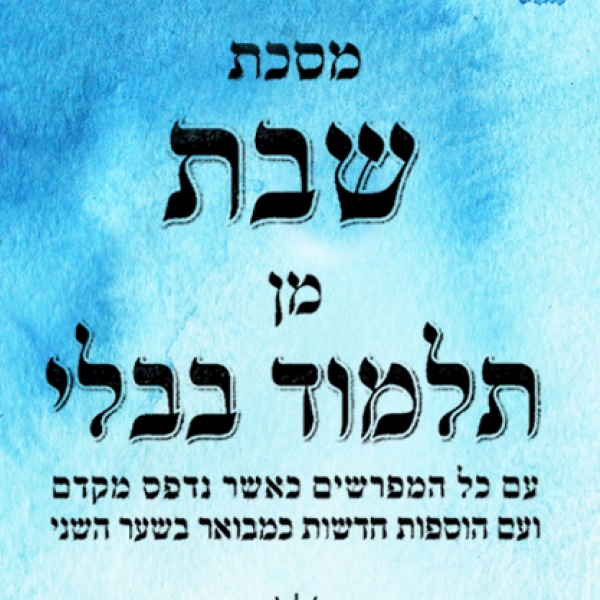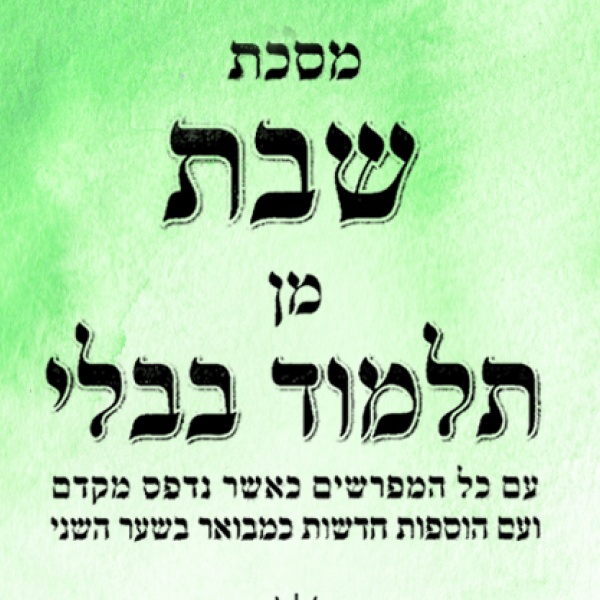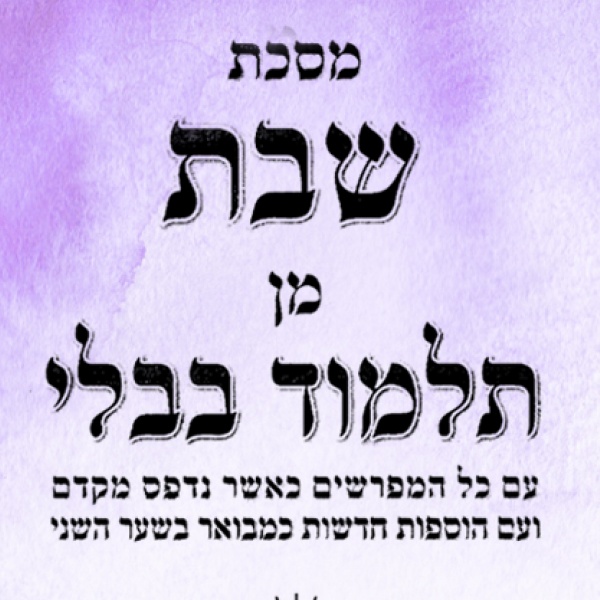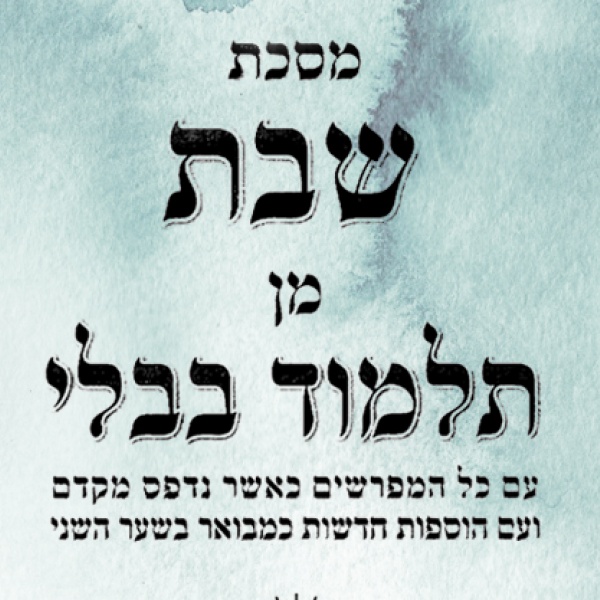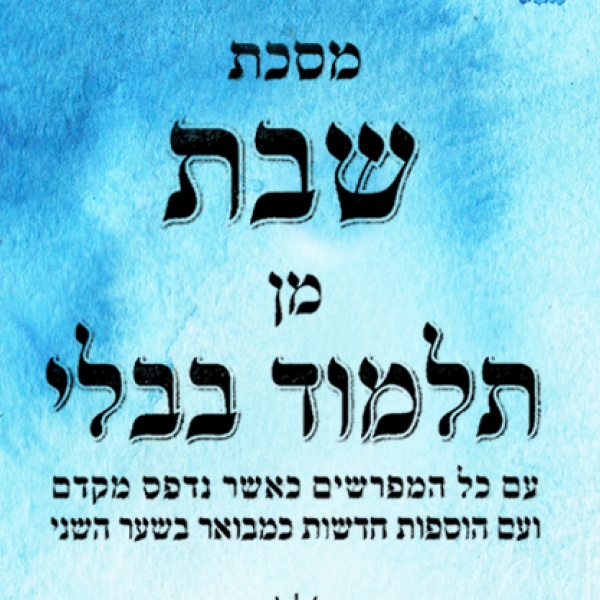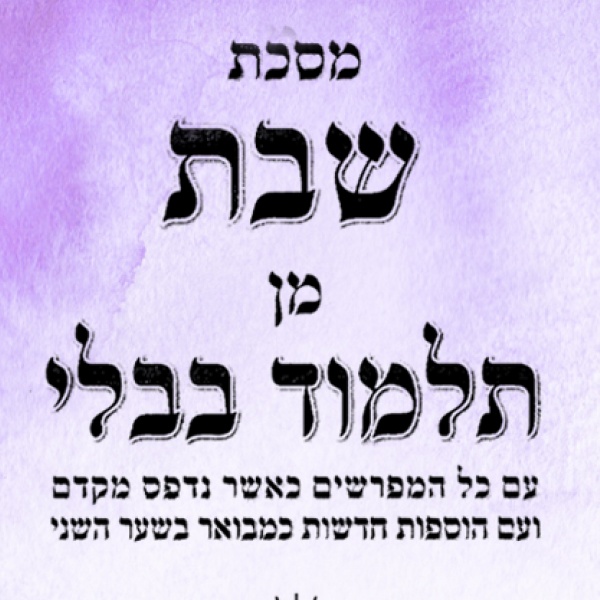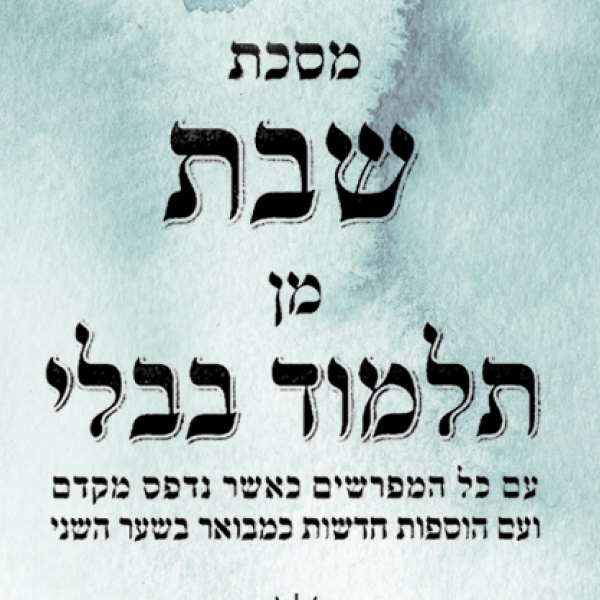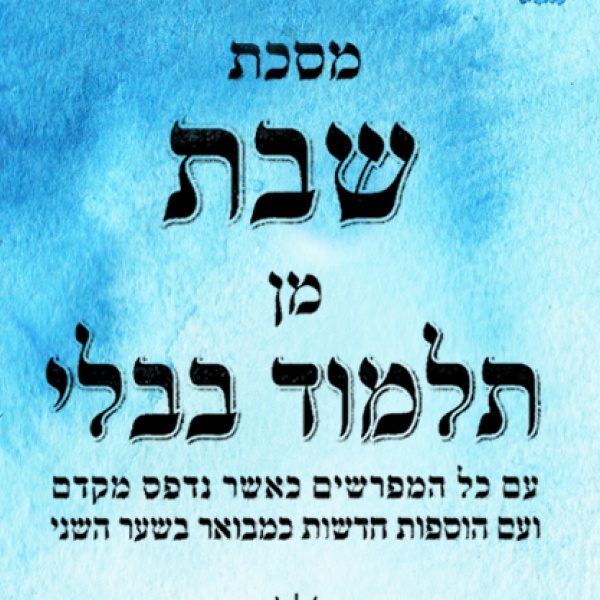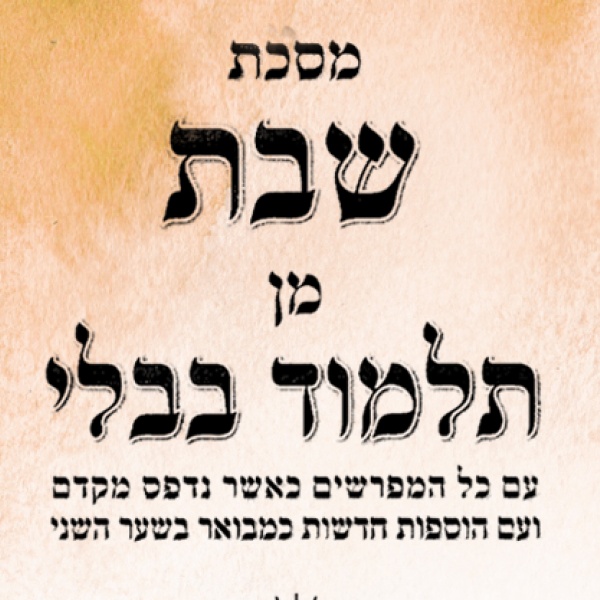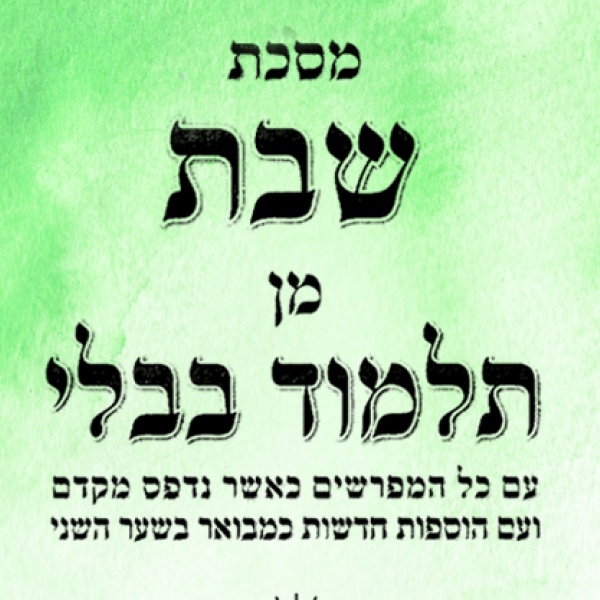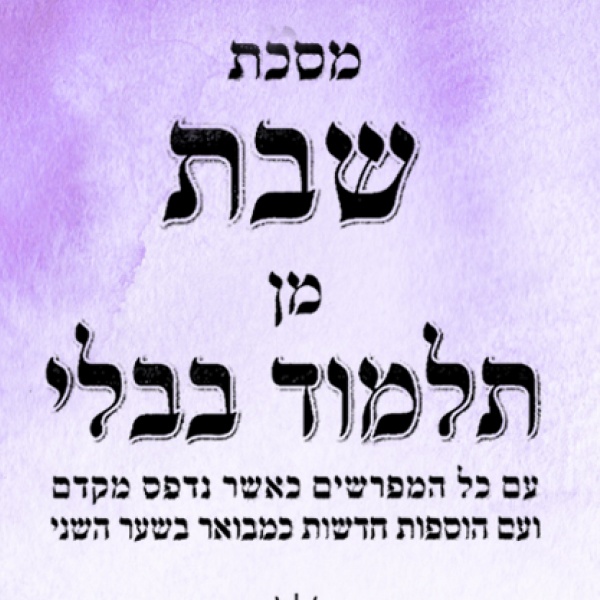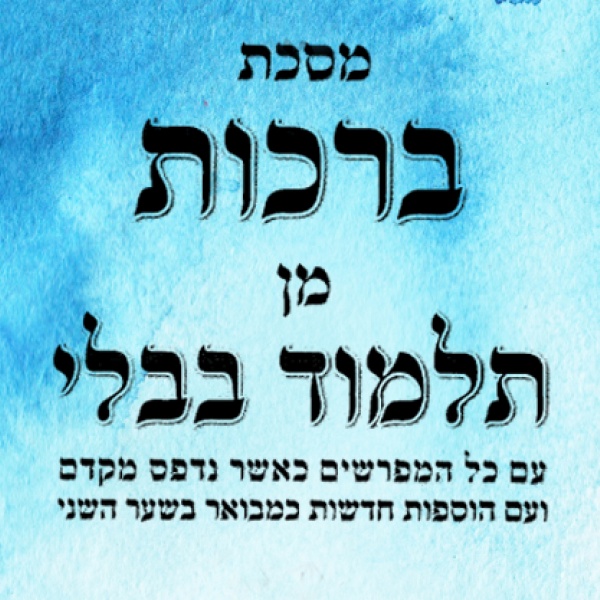The focus of masechet Shabbat is the definition of the parameters of the 39 prohibited melachot, creative activities prohibited on Shabbat. Of the 39…
One of the most vexing issues we face today is how to deal with those who violate, wilfully or not, the precepts of the Torah. Whether our approach…
“For there will never cease to be needy within the land. Therefore, I command you, saying, you shall surely open your hand to your brother, to…
"And now, Israel, what does G-d, Ma Hashem, want from you but just to fear the Lord your G-d, to walk in all His ways, to love Him and to…
“Mitzvot were given only to purify people” (Breisheet Rabba 44). By refraining from gossip, not bearing a grudge, not giving…
One of the best-known wedding customs is the breaking of a glass during the chuppah. The common explanation given for this custom is that it serves…
The most obvious connection between Tisha b’Av and parshat Vaetchanan—which is always read on the Shabbat following this…
A Jewish wedding consists of two distinct parts: eirusin and nisuin. In eirusin (also known as kiddushin), the …
If someone gives you ten answers to a question, the one thing you can be assured of is that none of the answers is a very a good one. If one has a…
“Rav Yehuda said in the name of Shmuel: Three thousand halachot were forgotten during the days of mourning for Moshe…
The true state of health of any society can be determined by an examination of the justice system that it provides for its citizens. Are rich and…
“Aharon the priest ascended Hor Hahar and died there in the fortieth year... in the fifth month on the first of the month” (Bamidbar 33:…
“Aharon the priest ascended Hor Hahar and died there in the fortieth year... in the fifth month on the first of the month” (Bamidbar 33:…
Canada is a wonderful country, and as residents of this country, we are obliged by Torah law to abide by its laws and also pray for its welfare.…
Parshat Pinchas presents us with at least three distinct models of leadership. Our parsha gets its name from the zealotry of Pinchas who, without…
"Take Aaron, and Elazar his son, and bring them up to Mount Hor; and strip Aaron of his vestments, and dress Elazar his son in them; Aaron shall…
It is most difficult to solve a problem if the protagonists will not meet with each other and hear each other out. While there is no guarantee that…
Great people are not afraid to put their name behind their convictions. “And Calev quieted the people for Moshe and said, ‘We will rise…
It is amazing how selective our memory can be. People often yearn for the good old days: days full of poverty, pogroms and peddling. The ability to…
One of the distinguishing marks of many successful companies is the encouragement they give to employees to experiment, encouraging innovation and…
Judaism has long insisted that we give people the benefit of the doubt: one is innocent until proven guilty. It is always difficult to…
“Rav Yossi said: It would have been appropriate had the Torah been given through Ezra, but Moshe preceded him… and even though the Torah…
“Rav Yossi said: It would have been appropriate had the Torah been given through Ezra, but Moshe preceded him… and even though the Torah…
That we are living in unprecedented times hardly needs to be stated. It is hard to believe that less than three months ago we in the west were living…
The Jewish nation waited for close to 1,900 years to regain sovereignty over G-d’s chosen land. It took an additional 19 years until…
The Jewish nation waited for close to 1,900 years to regain sovereignty over G-d’s chosen land. It took an additional 19 years until…
A mark of a good book is a clear and coherent structure. The opening chapters set the tone, themes are appropriately developed, and the conclusion…
One of the changes accompanying the creation of the State of Israel is the flourishing of the study of Tanach. Returning to our ancient homeland, and…
When our Sages entered the vineyard in Yavne, Rabbi Yehuda, and Rabbi Elazar, son of Rabbi Yossi, and Rabbi Shimon were there, and a question was…
“You shall count seven complete weeks from the day following the Shabbat from the day you brought the omer as a wave offering seven…
“Rabbi Shimon ben Gamliel says: The laws of hekdesh, consecrated items; terumot; and ma’asarot, tithes, are the…
The Torah is full of mitzvot relating to farmers. Whether one is plowing, planting, or harvesting, the Torah has clear guidelines to direct…
“Shimon ben Azzai said: I have received a tradition from the seventy-two elders on the day when they appointed Rabbi Elazar ben Azariah…
“And now, O Israel, what does the Lord your G-d demand of you but l’yirah, to revere the Lord your G-d, to walk only in His paths,…
Seemingly, one of the more depressing debates in rabbinic literature is one that the houses of Hillel and Shammai argued about for two-and-half years…
Much ink has been spilled and much discussion ensued in trying to analyze the difference between the question of the chacham and the rasha. On the…
“Who is wealthy? One who is happy with his lot!” (Avot 4:1). This teaching of Ben Zoma is undoubtedly one of the best known, most…
"This is the law of the sin offering, chatat: at the place where the elevation offering, olah, is slaughtered shall the sin offering be…
The Talmud quotes some 316 debates between Beit Hillel and Beit Shammai. “Since both these and those are the words of the living God”,…
The Talmud quotes some 316 debates between Beit Hillel and Beit Shammai. “Since both these and those are the words of the living God”,…
When it was still forbidden to write down the Oral Law, one of the very few written texts was that of Megillat Taanit, the scroll of fast days. This…
Perhaps Man’s greatest fear is his ultimate irrelevance, that we really don’t make a difference and that in the greater scheme of things…
“Rava bar Machsseya said in the name of Rav Chama bar Gurya in the name of Rav: One who gives a gift to another must inform him” (Shabbat…
“And it was on first month of the second year on the first of the month that the Tabernacle was erected” (Shemot 40:17). The first of…
One of the hardest mitzvot to properly fulfil is that of rebuke, “hocheiach tocheech et amitecha” (Vayikra 19:17). We are…
"And the people saw ki boshesh Moshe, that Moshe delayed in coming down from the mountain" (32:1). As a young nation coming from…
“The carrying out on Shabbat are two that are four [for one] inside [a home] and two that are four [for one] outside [the home]” (Shabbat…
Purim marks a transition point in Jewish history. It ushers in the time period of hester panim, the transition from G-d's obvious and active…
Leadership is not for the faint of heart. A leader, by definition, must make decisions that are going to hurt people. That does not mean the…
Judaism sees the sparks of the Divine within the most mundane of activities. Revelation at Sinai is followed by a series of laws dealing with such…



